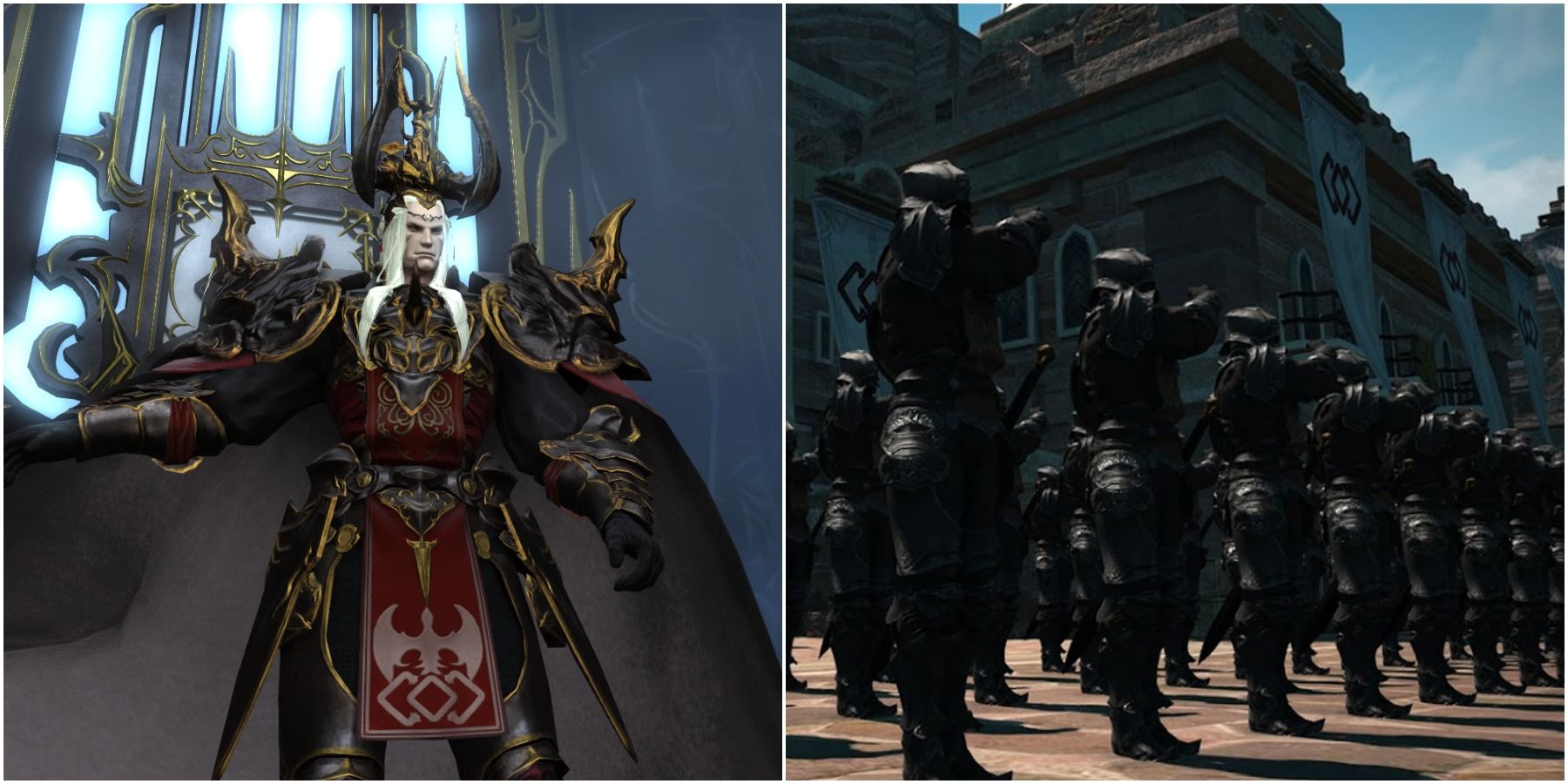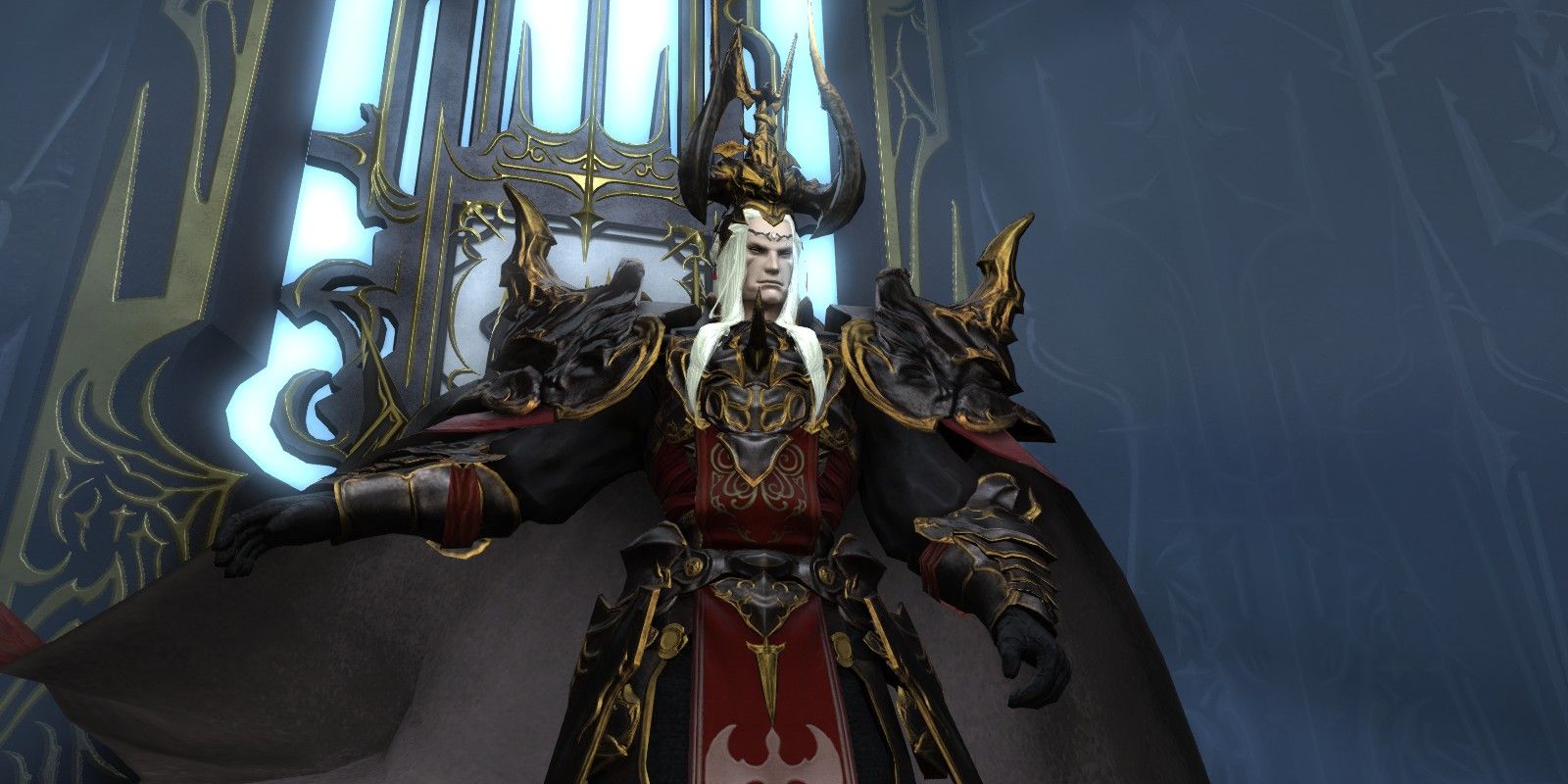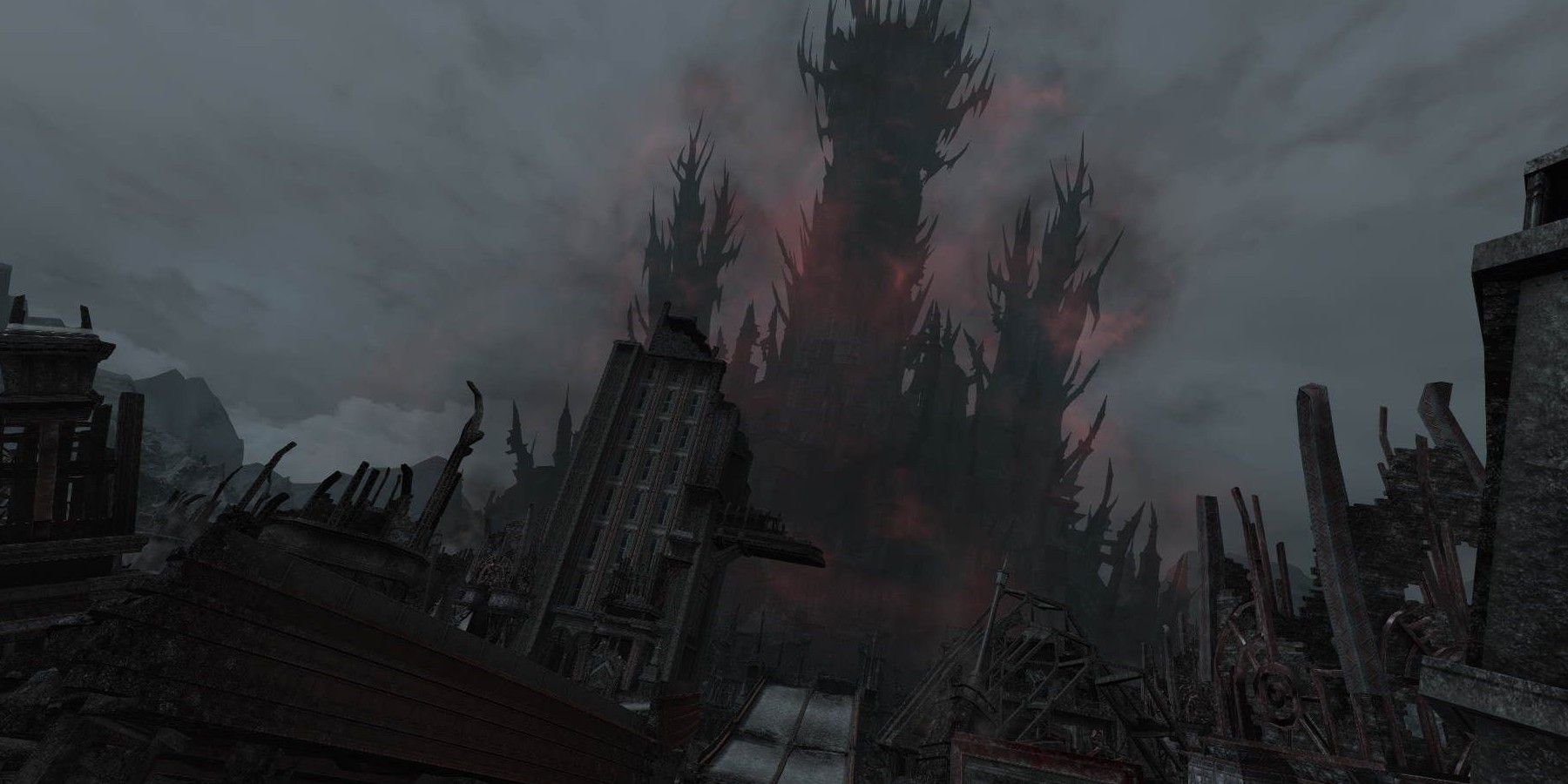Final Fantasy 14: Endwalker takes players to the Garlean Empire, a nation that has been involved in the main plot since the beginning. It is a nation that has raised most of the games' antagonists and been a bully to other nations. For decades the Empire has sought conquest, mining other nations' resources for ceruleum to power their magitek machinery. The Empire has pushed the agenda of Garleans being more advanced than other races to rule.
Endwalker has shown Garlean's colonialist and militaristic agendas are not just ethically abhorrent, but also strategically doomed to fail. In a situation where conquest cannot solve their problems, the Garleans and their entire power structure break down. The story has expertly shown the limits and consequences of nationalism, colonialism, and other real issues that many countries endure.
Final Fantasy 14's History Of Conquest
The Empire's motivation for conquest coincided with its technological revolution, needing ceruleum for their magitek so they can stay powerful. It is essentially Final Fantasy 14's version of an oil war, real-world conflicts over the production and use of petroleum fuel. In Endwalker, players get to see the ruins of Garlemald and find that their technology is a lot like the real world with cars, a subway system, train stations, and streets. A lot of ceruleum must be needed to power everything.
Due to this need for ceruleum, the nation profits from ingraining nationalism and xenophobia in its people. To believe non-Garleans are lesser is what gives soldiers the hearts to conquer. They believe the weak must be led by the strong, and the strong have to be Garleans. All of this cultivation of a nationalistic culture was meant to snowball into a nation that gained more power. However, Endwalker shows its players how such hubris can come crashing down.
The Consequence of Conquest
Once some conquered nations were liberated and the emperor had his untimely death, the Garlean Empire folded in on itself. As a nation that only understood how to solve its problems through conquest, it erupted into a civil war. The history, experience, and teachings of expansionism and military prowess made it difficult to find common ground.
When the Grand Company of Eorzea arrived in Garlemald to offer aid, the ingrained xenophobia was clear. Some chose death over accepting the help of outsiders as they expected to be treated the same as they treated others; to be conquered, even though that was far from what the Grand Company of Eorzea had planned.
The Garlean people seek leadership from military figures, and that also turns out to be a mistake. Leaders like Quintus van Cinna put any found ceruleum into magitek weapons rather than in keeping the people warm. He wants to win resources through combat, not through the kindness of outsiders. He refuses aid, but at the same time tries to take any offerings by force so he can have it the way his nation taught him to be.
The most revealing thing is a quote from Quintus. When Alisae and Alphinaud try to convince him that they wish for peace, Quintus replies by asking why other nations won't let themselves be conquered if they really care about peace. He shows a window into a twisted ideology, that the oppressor wishes for peace and the oppressed should stay in their place to keep it peaceful. The scary part is that this ideology does not just exist in Final Fantasy, but is reflective of true sentiments with political issues today.
The end of Quintus' life in Endwalker is also quite revealing. Once he learns that he cannot get what he wants through military prowess and would have to accept aid from foreign nations, he kills himself. His fate is a microcosm of what happens to the Garlean Empire as a whole, showing that conquest, nationalism, and colonialism should not be the bones of a nation if it wishes to have a truly strong future.
Final Fantasy 14: Endwalker is available now for PC, PS4, and PS5.



